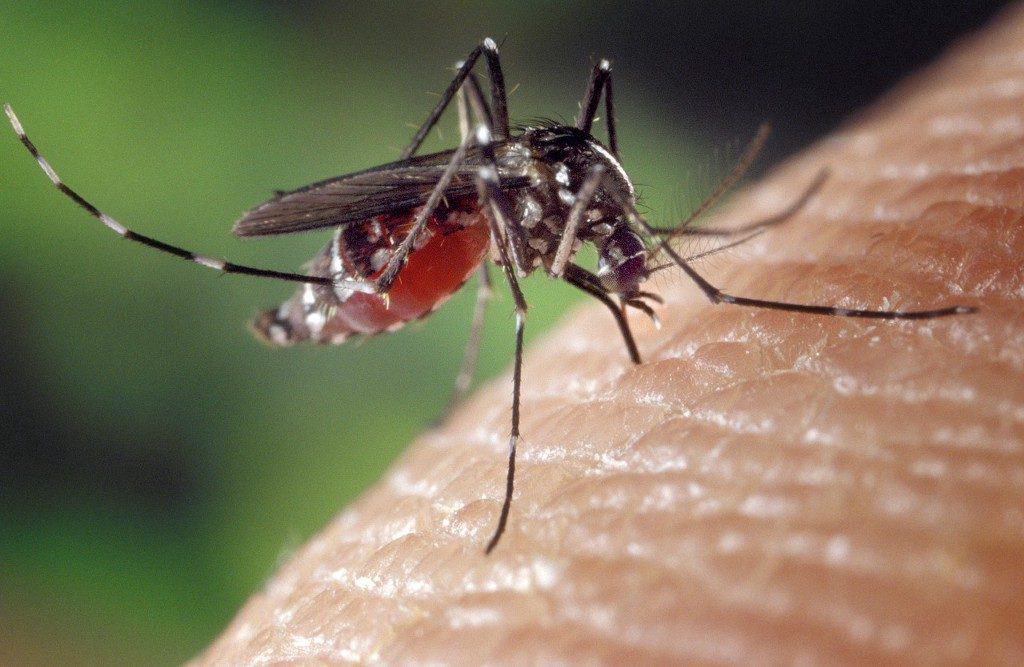
As the wet season continues, mosquito-borne diseases will remain a nuisance for South Jersey families

Although the summer may be over, mosquito season is not. That is something that the Camden County Department of Health and Human Services would like to remind residents as the year continues.
In a press release put out by Camden County, it notes that cases of West Nile Virus in the state of New Jersey has reached a record high of 31 total cases in the state, with two deaths having occurred, both of which are in Bergen County.
Locally there are two confirmed cases of residents testing positive for West Nile Virus in Camden County, and at the time of this article, a third is being tested for the disease. A woman tested positive for West Nile from Gloucester Township last month.
Freeholder Carmen Rodriguez, who serves as the liaison to the Department of Health and Human Services, says that while virtually all mosquito-borne diseases are trending down, West Nile Virus is for some reason rising.
“What we’re seeing right now, most of the mosquito-borne diseases that we monitor throughout the state have been trending down, with one exception, and that is West Nile,” said Rodriguez. “That is actually ticking up. Not entirely sure why it’s ticking up but it is ticking up and that is very, very significant.”
The virus cannot be spread from person to person; an infected mosquito must bite an individual to be able to contract the disease. Even after that, according to the release, only about 20 percent of infected people will develop West Nile fever and show symptoms, no matter how mild or severe they may be.
Symptoms can include flu-like symptoms with a fever, headache, body aches or nausea, which are all considered mild. However, more severe symptoms include running a high fever, neck stiffness or swelling of the brain, which can ultimately lead to a coma or death. According to the release, less than one percent of infected individuals will develop severe symptoms.
“The most important message we need to get out to people is the importance of protecting our community from West Nile, which is ticking up very, very heavily, and even the ones that are ticking down,” said Rodriguez. “We still don’t want to see any of these diseases that we monitor.”
The county has been proactive in trying to control the mosquito population through various methods, such as by placing fish in stagnant waters where mosquitos will lay their eggs and spraying numerous parts of towns throughout the season.
However, the community still plays an instrumental part. Thanks to a particularly wet season, the mosquito population has been relatively higher than previous years, leading to the possibility of a disease rearing its head in higher numbers than usual, such as West Nile Virus, according to Rodriguez.
The county checks thousands of potential mosquito breeding ground locations to check on the mosquito population and how prevalent the West Nile Virus is.
The county does not test every mosquito pool in the county that it comes across, however of the ones that it has tested, 39 have tested positive for West Nile Virus.
“If we have 39 [positive tests], that means there’s more,” said Rodriguez.
Residents have plenty that they can do on their own to protect their own property from being the location of a potential mosquito breeding ground location. Essentially, residents should watch closely of any space outside that can provide for stagnant water to collect and not be drained out, such as empty flowerpots, trashcans, birdbaths, boats and tarp covers and much more. Also, it helps to keep grass cut regularly.
Rodriguez said that there is no timeframe on how long to expect the mosquito season to last, as mosquitos can last pretty much until frost.
For more information or to report a mosquito problem in your area, visit www.camdencounty.com.









